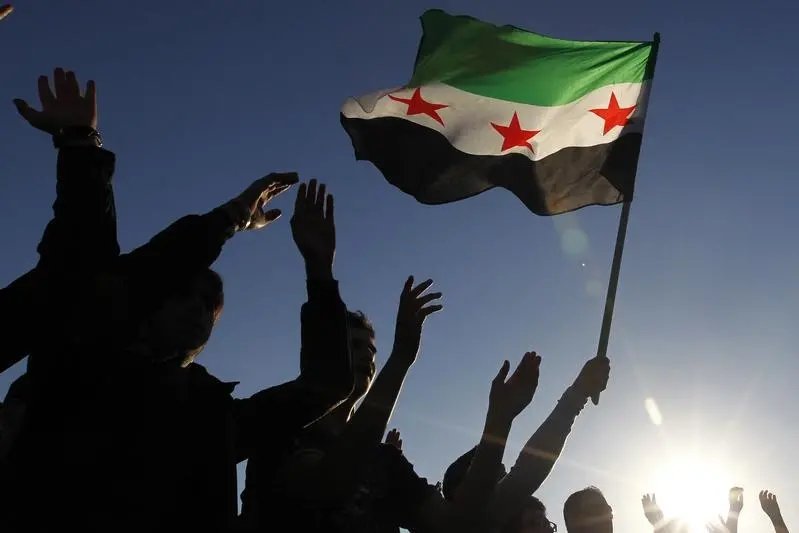PHOTO
With 2021 now behind us, I cannot help but indulge in some wishful thinking. This is despite the stories of gloom and doom in Lebanon, Syria, Palestine and other countries in the Levant. And, despite the realities that rule over the affairs of geopolitics, I cannot help but dream of a better world. So, to start this new year, let us have hope in the emergence of a new Levant.
The crisis is so deep that one cannot imagine any of the Levantine countries getting out of this quagmire on their own. Stability can only be regional. But what could the process for exiting the endless humanitarian crisis and reaching stability and prosperity be? Would the creation of a Levant Cooperation Council or Levant Economic Council be the start of the solution? Could this be achieved while conflicts remain a reality? The EU presents an interesting example as to how regional stability can be achieved. It can be a case study for building a new path through greater integration.
Yes, the EU is a net positive that has empowered the old continent to stay relevant as a powerful bloc. Despite critics — some of whom are close friends — the EU has brought prosperity. And any criticism of its excessive bureaucracy is surpassed by the benefits it has brought for its members. Another certainty is that, without the support of the US, this construction would not have been reached. The US has been the main pillar of stability throughout the world ever since the famous Marshall Plan in the wake of the Second World War. We all live better, healthier and safer lives than our ancestors of just 60 years ago, and far better than our ancestors of 120 years ago.
Unfortunately, this window to a better life keeps being shuttered for countries in the Levant. If we take Lebanon as an example, the country seems to be on the road back to the great famine it faced at the beginning of the 20th century. Meanwhile, Syria’s population has faced extreme oppression and mass killings for the past decade. The Palestinians are living between the Israeli rock and Iran’s hard place. Despite this situation, could we imagine the solution with the beginning of a union — even if only economic to start with — among all the countries in the Levant?
The start could be on the infrastructure front. Would it be possible to set aside differences and start building a common infrastructure plan that would help provide the electricity, water, logistics, healthcare and technology that the people of the Levant need? Would it be possible to see a single common project between Syria, Lebanon, Palestine, Israel, Jordan and Cyprus? The opportunities in terms of employment and gross domestic product growth would be a strong incentive.
Going back to the European model, when visiting French villages, we can see monuments honoring their soldiers and children who died during the wars of 1870-1871, 1914-1918 and 1939-1945. These point to the decades and decades of domestic and regional instability and the horrific wars that ensured millions of tragic deaths. It all finally came to an end when fascism was destroyed, but also when a greater vision for the region began to take shape. With the support of the US, Europe slowly healed the wounds between old enemies through trade and economic ties, making their futures common and indissociable. It started with six countries forming the European Economic Community, which ultimately morphed into today’s 27-member EU. It is also true that it was a way to keep the Soviet Union at bay.
Most of the ills in the Levant are caused by the actions of the Iranian regime. Even when it comes to the Palestinian-Israeli peace process, regional initiatives have been torpedoed more than once by the Tehran regime’s proxies, leading to more misery for the Palestinians. In Syria and Lebanon alike, misery has been the only outcome of this occupation. Unfortunately — and unlike in Europe, where the evil forces of fascism were annihilated — in the Levant, the Iranian regime has the upper hand. Therefore, can we really build something greater for the Levant when Hezbollah conducts its terrorist activities in Lebanon? Can we change the way the Syrian regime has been operating for decades? The answer is no.
There is only one path toward this new Levant: A fair resolution of the Israeli-Palestinian conflict and an end to Iran’s nefarious interference in other countries’ affairs. These are two linked conditions that must be met if the potential of a zone that could be a pillar of stability for the entire Mediterranean region is to be unlocked. The other key is that the new Levant should not be built under the umbrella of a single ethnic or religious group. It should recognize, if not celebrate, its rich diversity.
Vienna, where the relaunch of the Iran nuclear deal is currently being negotiated, could be where we make this wishful thinking a reality. It would take a strong stand from the US and the EU to make these conditions a reality: Removing the Iranian threat and ensuring 100 percent security in the region, while getting Israel to make meaningful and rightful concessions for the Palestinians. It would be a unique moment in history that could change the path of the entire region.
Imagine deeper integration with the movement of people and goods and the development of sustainable infrastructure. All this bundled up with the Levantine spirit of entrepreneurship. It is a guaranteed recipe for stability and prosperity. What a beautiful dream.
- Khaled Abou Zahr is chief executive of Eurabia, a media and tech company, and editor of Al Watan Al Arabi.
Copyright: Arab News © 2022 All rights reserved. Provided by SyndiGate Media Inc. (Syndigate.info).





















